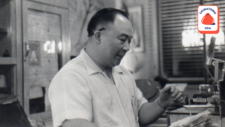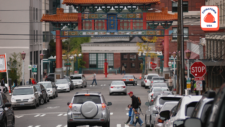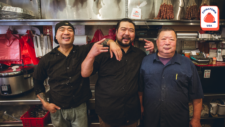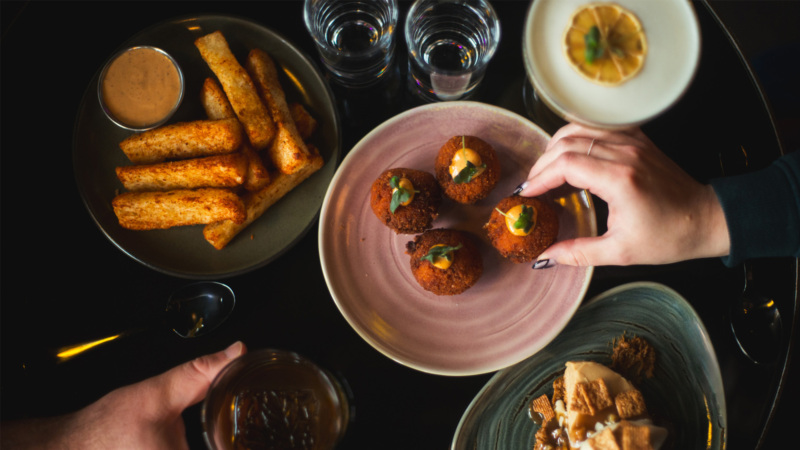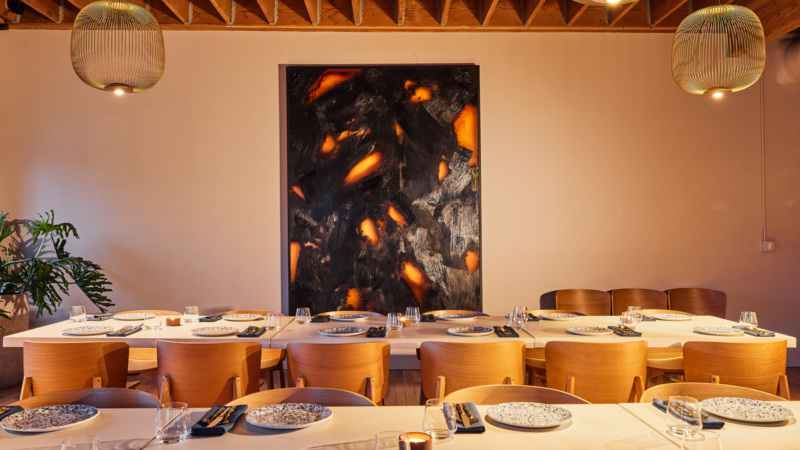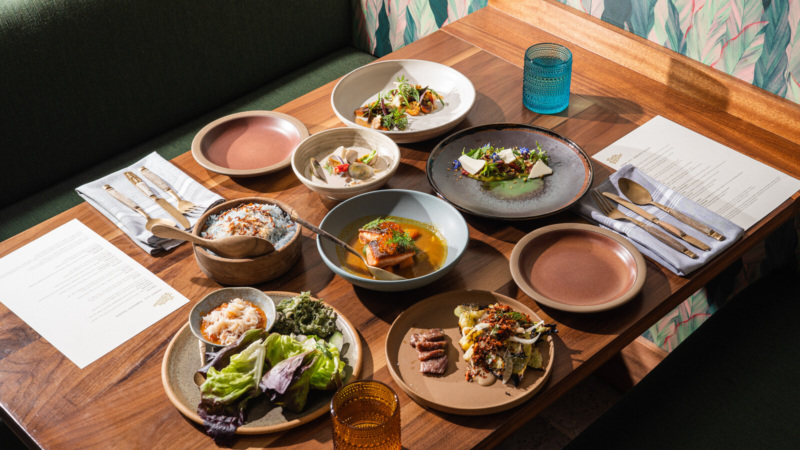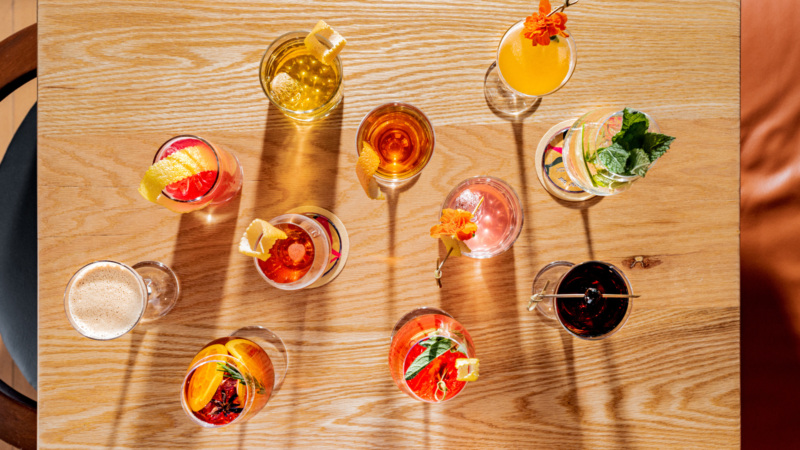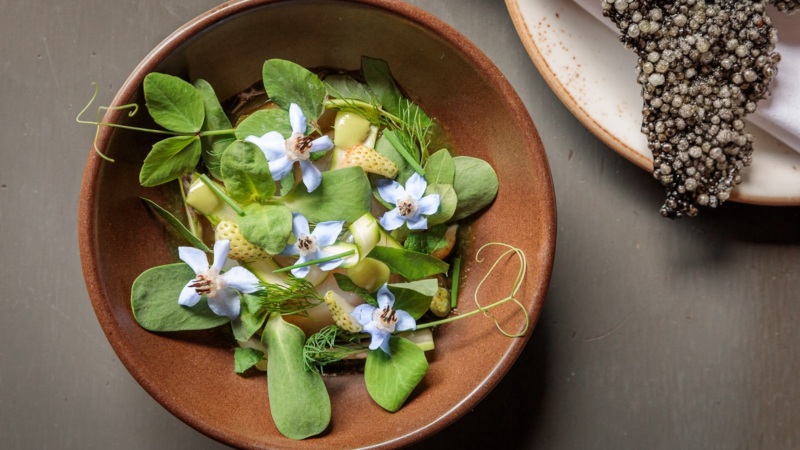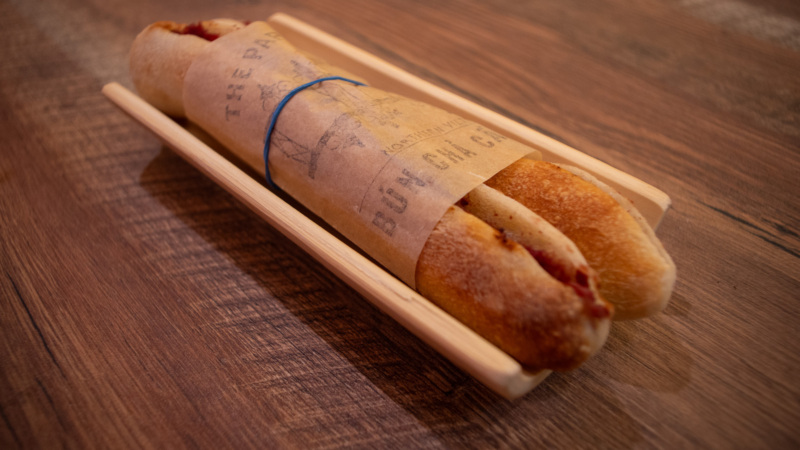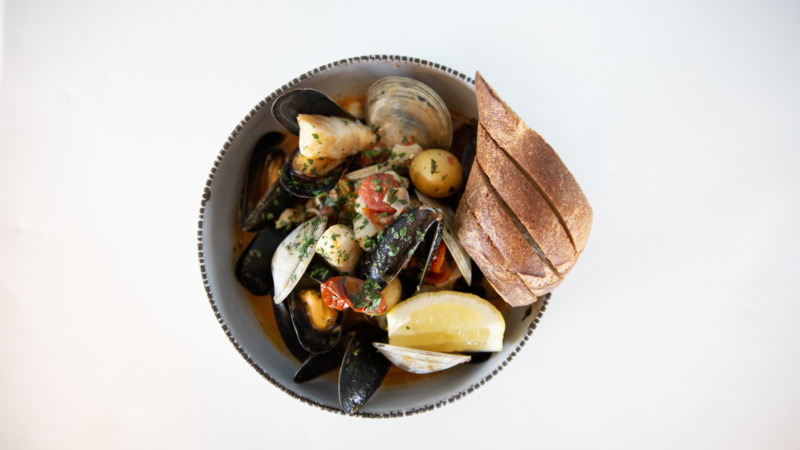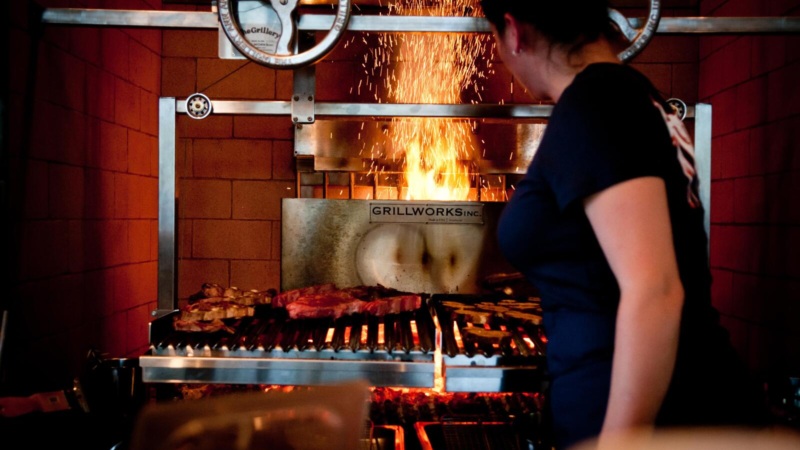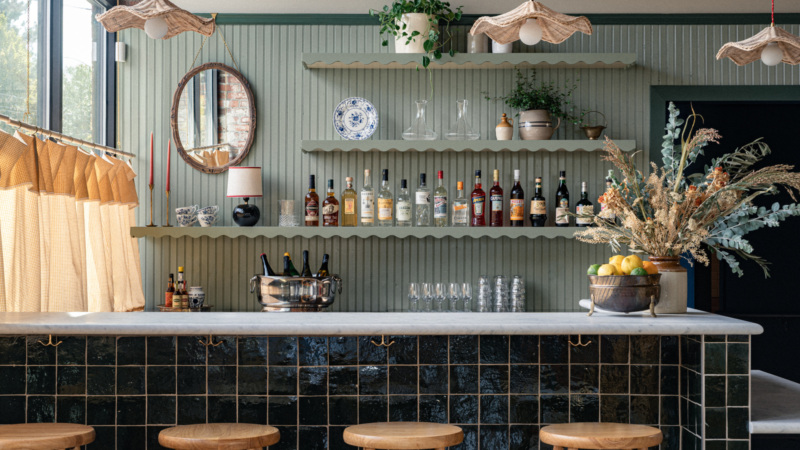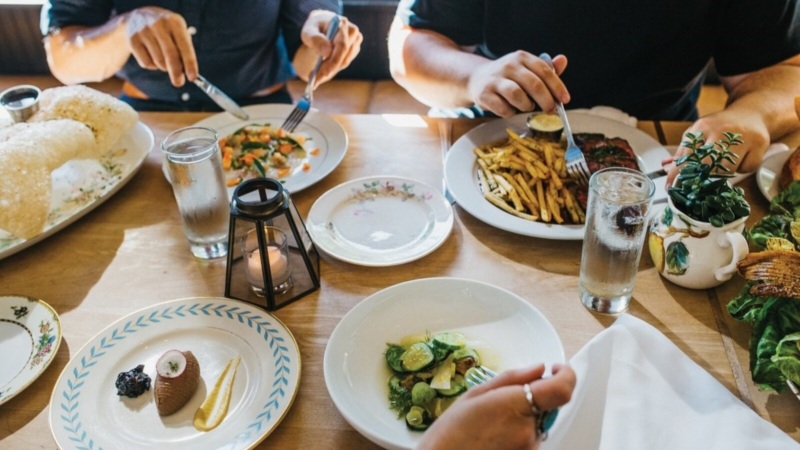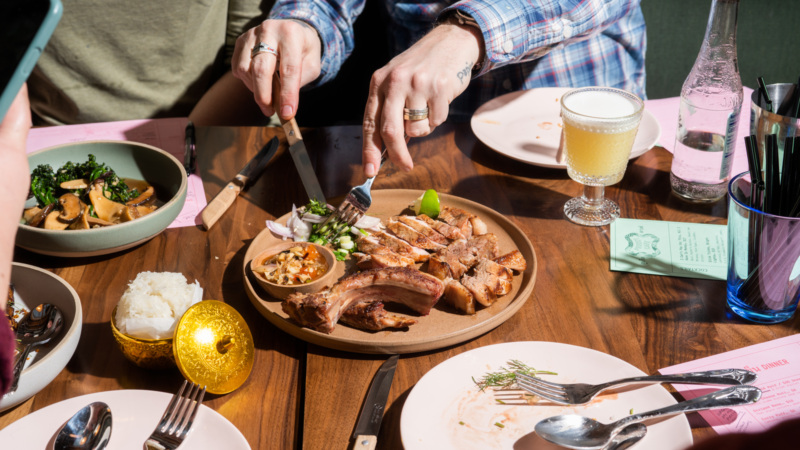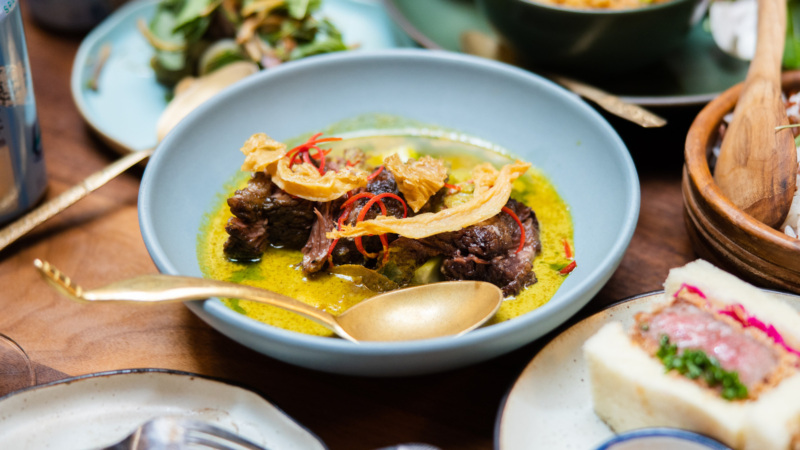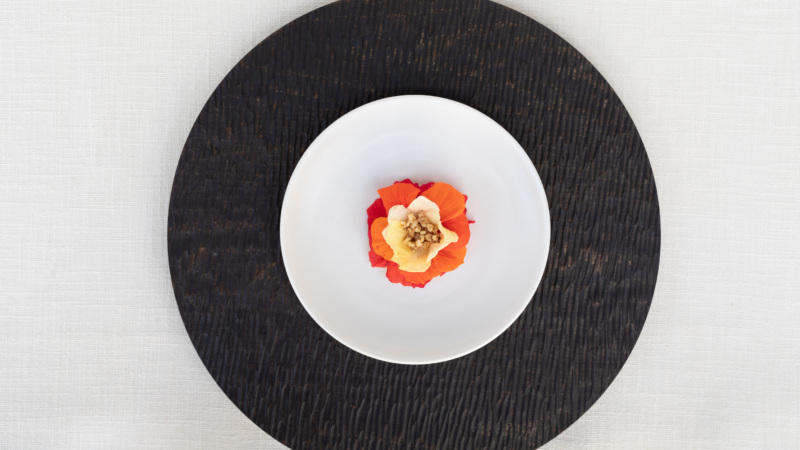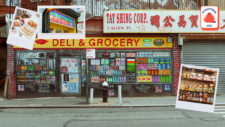
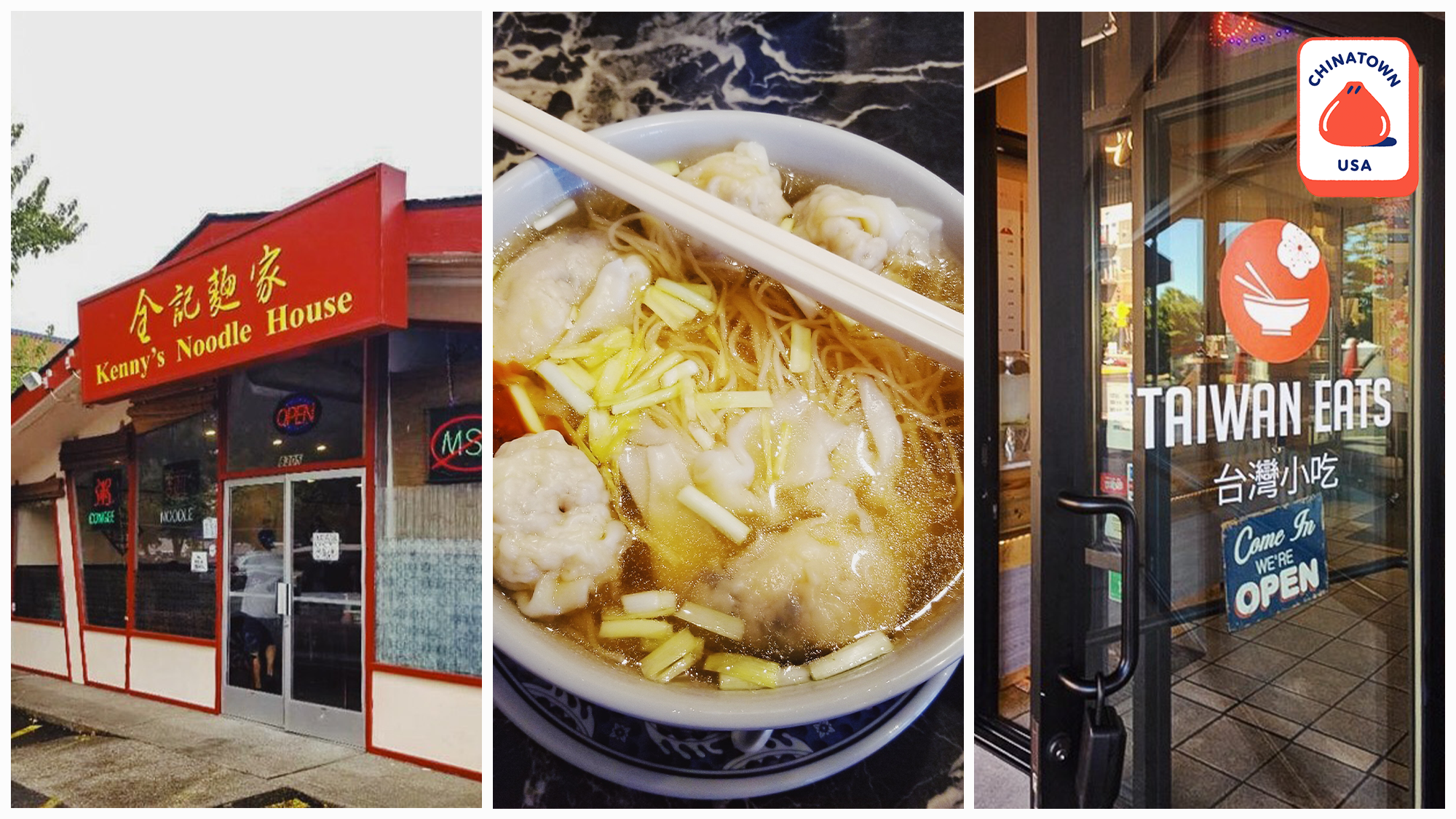
The Resy Guide to Portland’s Chinatowns, By Those Who Love Them Best
A first-time visitor to Portland might see the city’s Chinatown gate as a beacon, inviting travelers into a rich cultural enclave similar to those found in Chicago or San Francisco. The gate, which spans NW 4th Avenue along the city’s north-south demarcation street, Burnside Avenue, is a stone’s throw from tourist-centric Voodoo Doughnut and Saturday Market. But the city’s Chinatown today exists mostly in name, with much of the region’s Chinese communities having moved outside of the city center, westward into Beaverton and eastward to the Jade District in Southeast Portland and beyond.
Portland’s Old Town/Chinatown first started as the city’s original downtown, a hub for sailors, longshoremen, day laborers, and immigrants. The area provided lower rents, and with the Chinese Exclusion Act of 1882 and the Immigration Act of 1924, restricted the movement of Chinese and Japanese immigrants to the neighborhood.
What is now called Chinatown was first the city’s Nihonmachi, a diverse neighborhood that housed bustling businesses, restaurants, and shops that served Portland’s growing Japanese American population before internment largely wiped it out. The city only reworked the area into a Chinatown in the 1980s, after most of the Chinese immigrants and Chinese Americans had left the area, and now exists mostly as a tourist destination. Still, a handful of popular, longstanding Chinese-owned restaurants remain in the neighborhood, and today a diverse array of business owners, as well as the Old Town Community Association, are working to bring business back to Chinatown.
Six miles east of Chinatown lies the Jade District, one of the most diverse census tracts in the state, accessible by public transit or a 20-minute ride from downtown. Though the Jade District has become the cultural hub for much of the city’s Asian communities, it’s small in comparison to other cities along the West Coast. The commercial district is now home to some of the city’s best Chinese restaurants and grocery stores, as well as food businesses owned by Vietnamese, Thai, Korean, Latinx, Black, and other Asian and Pacific Islander communities.
Thus the restaurants below represent a larger swath of the region’s Chinese restaurants, with many reaching beyond those located in Chinatown proper. With regional specialties, like Taiwanese pork belly and rice and buns hailing from the streets of Guangdong and Tianjin alongside homestyle noodle soups and more, this is where you’ll find notable members of the Asian American community in Portland celebrating family traditions, meeting with constituents or looking for familiar, homestyle dishes.
Zien Hong
I love Zien Hong — the fact that it’s late night, and the fact that everybody that works there is always happy. When we first moved to Portland, to this house, we were looking for some Asian food, and slowly figured out there’s not a lot of Asian food in the area of Portland where we live now. [Zien Hong] is a little oasis. Their food is on point compared to a lot of other Chinese restaurants I’ve eaten at here. Late at night after work, when we’re all tired, when all the cooks want to go eat, they crush it. Their salt-and-pepper squid is one of the better versions I’ve had in the city. It’s perfectly crisp and seasoned, balanced between all flavor profiles. A hint of sugar really helps frame everything — just enough sweetness to make me wonder if it was there at all. //5314 NE Sandy Blvd., Portland, zienhong.com.
Carlo Lamagna
Chef-owner, Magna Kusina
Taiwan Eats
My parents are Taiwanese, so I’m going to take the opportunity to shout about Taiwan Eats, a tiny, casual place in the northwest suburbs that is one of my favorite lunch spots. In my opinion, the best dish on their menu is the braised pork belly and rice. It’s a hearty, flavorful comfort food meal, and I’m a sucker for any dish that includes a marinated egg. I get a craving for it on a regular basis. As a writer, I’ve spent many hours working at the library across the street, or in the nearby Starbucks, or when the weather is nice, at the public tables by the fountain. So I always have an excuse to visit Taiwan Eats for lunch, for the sake of my “productivity.” // 4708 NW Bethany Blvd., E6, 503-466-9968.
Fonda Lee
Science fiction and fantasy author
Chen’s Good Taste
When I first moved back from New York to Portland and we did our first series of pop-ups, we were doing our prep and our dinners in Old Town Chinatown. A block away was Chen’s Good Taste. Pretty much every lunch we would go there and get a bowl of their roast pork and roast duck wonton noodle soup. It was awesome to have it so close. We got to become regulars, and it would be great, because you walk in and they’d have their roast pork hanging in the window, and their roast duck out of their ovens hanging in the window for their lunch rush, and it was delicious. //18 NW 4th Ave., chensgoodtastetogo.com.
Peter Cho
Chef and owner, Han Oak
Golden Horse Seafood Restaurant
Our family has been going to Golden Horse forever, as long as I think that restaurant has been in existence. We go there for specific dishes: One of my favorites is made with minced pork and has three different kinds of eggs in it. It reminds me of my mom’s cooking. Their beef chow fun? Can’t find it anywhere else. Their gai lan is so yummy. Their jook is very, very good: Our two favorite varieties are the pai dan sau yolk jook (thousand-year-old eggs with pork) and the beef jook. When we crave comfort food, that’s where we go.
And Chen’s Good Taste down the street has great wonton noodles — the char siu is my favorite. You can’t get it anywhere else! It’s our go-to place when I want a good bowl of noodle soup. // 238 NW 4th Ave., goldenhorseportland.com.
Helen Ying
President, Old Town Community Association
Master Kong
I love Master Kong, in the Jade District. They serve handmade dumplings, steamed buns, soups, and street food from the Guangdong and Tianjin regions of China. It’s a few blocks from my house, and I schedule a lot of one-on-one meetings there as an alternative to meeting up over coffee. Why pay $5 for a latte or cup of tea when you can pay a little more for a huge bowl of congee or a plate of handmade dumplings? They have delicious handmade dumplings and when I’m feeling sick, or just need some comfort food; their congee (what in Vietnamese we call cháo) always nourishes my body and soul. When I want a change, they offer jianbing, a great Chinese-style breakfast crepe or burrito that can be made vegetarian, or with pork belly or brisket.
My favorite memories of this place are bumping into other neighbors and friends when we go there, so it feels like a community spot. It has always been a hoppin’ place from morning ‘til night. Now with COVID-19, they’ve opened up a walk-up counter outside so you don’t have to go inside to order takeout. I miss the impromptu gatherings but I appreciate being able to stay safe while still enjoying their food! //8435 SE Division St., Portland, 971-373-8248.
Khanh Pham
Winning candidate for state representative, House District 46
Kenny’s Noodle House
I moved to Portland six years ago to start a new life. I was jobless and found my apartment online, sight unseen. I happened to move into a place that was across the street from Kenny’s Noodle House on SE Powell. I also happen to be Cantonese, and Kenny’s serves up some of the best Cantonese comfort foods, like jook, youtiao, beef brisket, and wonton noodles. Having grown up in a small Chinese restaurant, Kenny’s reminds me of that small, family-run, no-frills kind of place.
It was exactly the comfort I needed at the time, and Kenny’s was very affordable, so I sometimes ate there three to four times a week. Wonton suikau noodle soup is my favorite dish there. The suikau have a nice chunk of shrimp in each one, and the wontons are made with meat minced by a cleaver, old-school style. You can feel the texture. Even though I’m living out in Hillsboro now, I still make the trek to Kenny’s to get a bowl of comfort regularly. // 8305 SE Powell Blvd., 503-771-6868.
Kittie Kong
Portland president, Chinese American Citizens Alliance
Hung Far Low
At one point in Portland’s past, its Chinatown (known as Old Town Chinatown) was one of the largest in the U.S. Now I barely recognize the area. Shops and restaurants have closed or moved to other parts of the city. Because I was born and raised in Portland, Old Town Chinatown is very nostalgic, especially one specific restaurant. In the 1970s, my family get-togethers with cousins, aunts and uncles were at Hung Far Low, which was most famous for its ornate sign. We always ordered the mar far chicken and the pork chow mein, but most memorable were the sweet and sour spare ribs. The contrasting flavors of the dish seemed to resonate with me even as a preteen. Hung Far Low moved from the Chinatown location in 2005, and permanently closed in 2015, after 87 years in business. (Although the sign remains.)
Gary Okazaki
Local celebrity and globe-trotting gourmand
Samantha Bakall is a Chinese American writer based in Portland whose work has appeared in The Oregonian, where she covered food for four years; Eater; and elsewhere. Follow her on Instagram and Twitter. Follow Resy, too.


